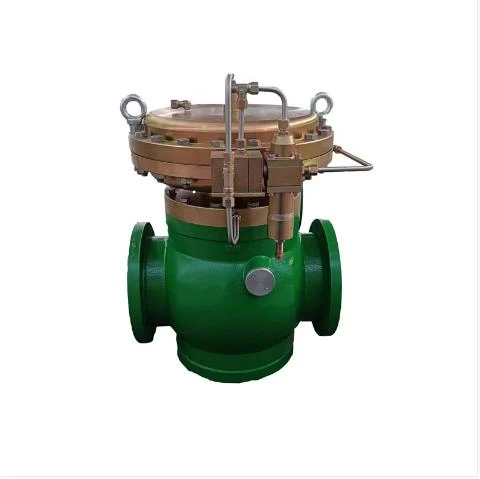
Nov . 27, 2024 15:24
Back to list
Understanding Gas Regulators and Their Importance in Controlling Pressure and Flow
Understanding Gas Regulators A Vital Component for Safety and Efficiency
Gas regulators are crucial devices in various applications, whether in residential, commercial, or industrial settings. Their primary function is to control the pressure of gas supplied to appliances, ensuring safety, efficiency, and optimal performance. In this article, we will explore what gas regulators are, how they work, and why they are essential in our daily lives.
What is a Gas Regulator?
A gas regulator is a mechanical device used to maintain a constant outlet pressure regardless of fluctuations in the inlet pressure. This is particularly important because gas pressure can vary due to changes in supply conditions, temperature, and demand. Regulators provide a steady flow of gas to equipment such as heaters, stoves, and industrial machinery. They typically consist of several components, including a diaphragm, spring, adjustment screw, and inlet/outlet ports.
How Do Gas Regulators Work?
Gas regulators operate on a straightforward principle they adjust the amount of gas flowing through them to maintain a preset pressure level. When gas enters the regulator, it exerts pressure on a diaphragm. This diaphragm is connected to a spring that can be adjusted to change the set-point pressure. If the inlet pressure exceeds the desired outlet pressure, the diaphragm moves, compressing the spring and throttling the gas flow. Conversely, if the inlet pressure drops, the spring pushes the diaphragm away, allowing more gas through.
This feedback mechanism is crucial because it ensures that the appliances using gas receive a consistent pressure, leading to reliable performance. For example, cooking appliances require a specific gas pressure to function correctly; too high or too low can result in poor combustion and hazardous conditions.
gas regulator

Importance of Gas Regulators
1. Safety One of the most critical roles of gas regulators is to prevent excessive pressure, which can lead to leaks, explosions, or other hazardous situations. Regulators are designed to relieve pressure safely, making them a key component in any gas system.
2. Efficiency By maintaining optimal pressure, gas regulators help appliances operate efficiently. This not only saves energy but also extends the life of the equipment, reducing maintenance costs and downtime.
3. Versatility Gas regulators are used across various industries and applications. From home cooking and heating to large-scale industrial processes, their versatility ensures that different types of gas usage maintain the correct pressure levels.
4. Compliance Many regulatory standards require the installation and use of gas regulators in gas supply systems. These regulations are designed to protect users and ensure that gas appliances operate safely and effectively.
Conclusion
Gas regulators may seem like simple devices, but their function is essential for the safe and efficient use of gas in our lives. They play a significant role in ensuring that gas flows at the correct pressure, protecting users from potential hazards while enhancing the performance of gas-powered appliances and machinery. Understanding the importance of gas regulators can help users appreciate the technology behind the equipment they use daily and the safety measures in place to protect them. Investing in high-quality gas regulators and ensuring proper installation and maintenance can make a significant difference in safety and efficiency for any gas supply system.
Latest news
-
Safety Valve Spring-Loaded Design Overpressure ProtectionNewsJul.25,2025
-
Precision Voltage Regulator AC5 Accuracy Grade PerformanceNewsJul.25,2025
-
Natural Gas Pressure Regulating Skid Industrial Pipeline ApplicationsNewsJul.25,2025
-
Natural Gas Filter Stainless Steel Mesh Element DesignNewsJul.25,2025
-
Gas Pressure Regulator Valve Direct-Acting Spring-Loaded DesignNewsJul.25,2025
-
Decompression Equipment Multi-Stage Heat Exchange System DesignNewsJul.25,2025

